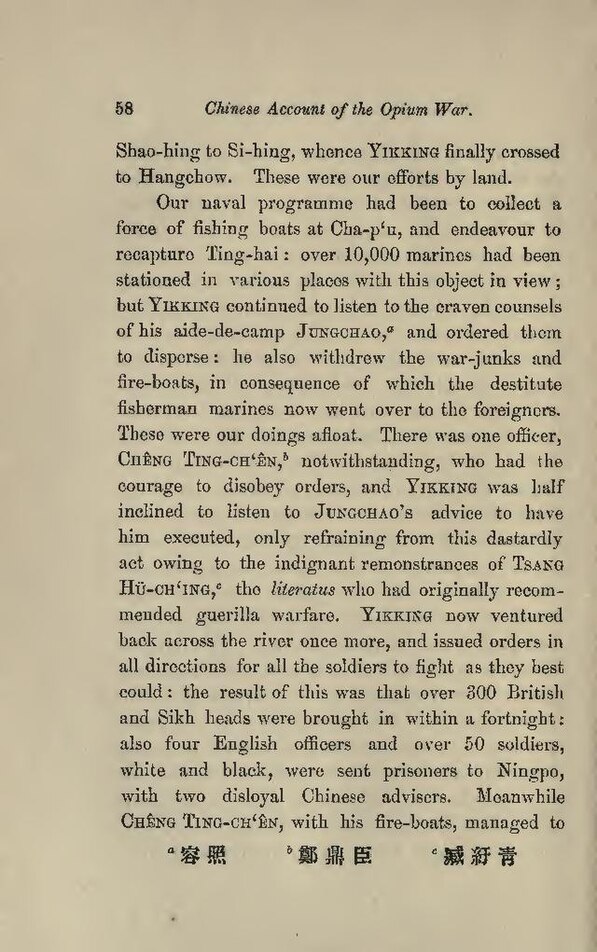Shao-hing to Si-hing, whence YIKKING finally crossed to Hangchow. These were our efforts by land.
Our naval programme had been to collect a force of fishing boats at Cha-p'u, and endeavour to recapture Ting-hai: over 10,000 marines had been stationed in various places with this object in view; but YIKKING continued to listen to the craven counsels of his aide-de-camp JUNGCHAO[1] and ordered them to disperse: he also withdrew the war-junks and fire-boats, in consequence of which the destitute fisherman marines now went over to the foreigners. These were our doings afloat. There was one officer, CHÊNG TING-CH'EN,[2] notwithstanding, who had the courage to disobey orders, and YIKKING was half inclined to listen to JUNGCHAO's advice to have him executed, only refraining from this dastardly act owing to the indignant remonstrances of TSANG HÜ-CH'ING,[3] the literatus who had originally recom- meuded guerilla warfare. YIKKING now ventured back across the river once more, and issued orders in all directions for all the soldiers to fight as they best could the result of this was that over 300 British and Sikh heads were brought in within a fortnight: also four English officers and over 50 soldiers, white and black, were sent prisoners to Ningpo, with two disloyal Chinese advisers. Meanwhile CHÊNG TING-CH'EN, with his fire-boats, managed to
